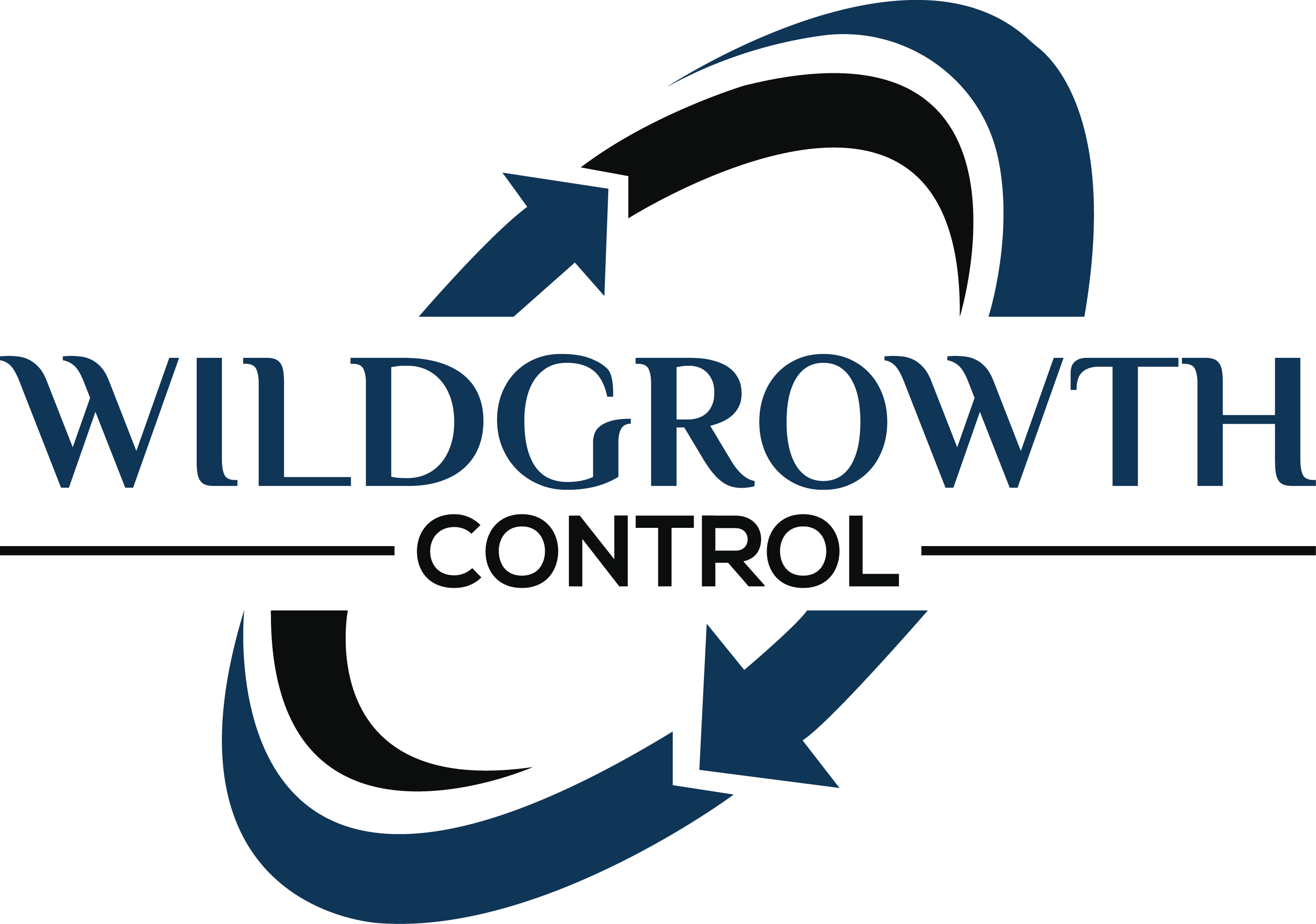Best CRM for Lawyers in 2025: Top Picks and Features That Matter
Your firm might be winning cases, but are you losing leads?
In today’s legal landscape, it’s not just legal expertise that sets successful firms apart; it’s how they manage relationships. From the first inquiry to long-term follow-ups, how you manage and nurture leads matters more than ever.
That’s where a CRM for lawyers comes in.
A CRM (Client Relationship Management) system helps your law firm stay organized, automate communication, follow up consistently, and convert more leads into paying clients. It gives you a clear, centralized view of every contact, from new prospects to repeat clients, and helps you stay responsive without relying on sticky notes, inbox flags, or memory.
Whether you're a solo attorney juggling intake calls or part of a growing firm trying to scale operations, the right CRM can save time, improve client experience, and boost your bottom line.
In this guide, we’ll break down:
What makes a CRM lawyer-friendly
The top CRMs that legal professionals use in 2025
Feature comparisons between popular tools
How to choose the right fit based on your firm’s needs
Let’s dive in and find the CRM that can help you manage more with less.

Table of Contents
1. What Makes a CRM Ideal for Legal Practices?
Not all CRMs are created equal, especially when it comes to law firms. While most business CRMs are built to track sales pipelines, legal practices need tools that manage people, matters, compliance, and trust. That’s why choosing a CRM built for law firms is crucial.
Here’s what separates a great legal CRM from a generic one:
Legal-Specific Functionality
Legal CRMs are designed to reflect how law firms operate, not how sales teams sell. You should be able to:
Track matters, not just leads
Run conflict checks
Tag contacts by case type, urgency, or referral source
Trigger workflows specific to your practice area (e.g., immigration intake vs. personal injury)
Why it matters: You need more than names and numbers, you need a CRM that thinks in legal terms.
Seamless Integrations
The CRM shouldn’t stand alone. It should play well with:
Practice management software (Clio, MyCase, PracticePanther)
Email & calendar (Gmail, Outlook)
Scheduling tools (Calendly, Acuity)
Billing systems
Document management and e-signature platforms (DocuSign, HelloSign)
Why it matters: Integration cuts down on double entry, streamlines workflows, and keeps your data synced across platforms.
Automation and Templates
You shouldn’t have to send the same follow-up email or reminder 20 times a week. A good legal CRM automates:
Consultation follow-ups
Intake form delivery
“No response” sequences
Nurturing emails to cold or unengaged leads
Why it matters: Automation saves time, keeps your pipeline moving, and ensures no lead falls through the cracks.
Centralized Communication
All your emails, notes, calls, and tasks should live in one place, attached to the relevant contact or matter. Legal CRMs should offer:
Complete contact history
Internal notes and reminders
Timeline views of activity
Communication logs
Why it matters: You always have context when calling, emailing, or following up, even weeks later.
Ease of Use and Scalability
The best legal CRMs are simple enough to get started quickly, but flexible enough to grow with your firm.
Look for:
Clean dashboards
Easy form and workflow builders
Role-based access for teams
Cloud-based access (desktop + mobile)
Why it matters: If it’s too complex, your team won’t use it. If it can’t grow with you, you’ll outgrow it fast.
2.Top 7 Best CRMs for Lawyers in 2025
Choosing the best CRM for lawyers depends on your firm’s size, workflow, and goals. Below are seven standout CRM platforms in 2025, some built exclusively for legal professionals, others easily tailored for firm use. All of them help you manage leads, improve communication, and streamline intake.
1. Clio Grow – Best All-in-One Legal CRM
Overview:
Part of the Clio Suite, Clio Grow is designed specifically for law firms. It manages everything from first contact to signed engagement, with seamless integration into Clio Manage for post-retention casework.
Top Features:
Custom intake forms and automated follow-ups
Email templates, e-signatures, and appointment scheduling
Lead tracking with visual pipeline view
Native integration with Clio Manage
Best for: Small to midsize firms looking for a legal-first, all-in-one solution.
2. Lawmatics – Best for Automation & Marketing
Overview:
Lawmatics is a powerful CRM, intake, and marketing automation platform built for law firms that want to scale. Its visual workflow builder and robust campaign tools are ideal for firms focused on growth and expansion.
Top Features:
Custom workflows for intake and onboarding
Automated drip campaigns (email/SMS)
Form builder with conditional logic
Insightful reporting and analytics
Best for: Firms investing in client experience, digital marketing, or automation-heavy processes.
3. MyCase CRM Module – Best for Firms Already Using MyCase
Overview:
If you’re using MyCase for case management, its built-in CRM tools help you manage leads and consults without switching platforms. It keeps intake and case work under one roof.
Top Features:
Intake tracking with lead status labels
Internal messaging, shared documents, and a secure client portal
Appointment scheduling and task automation
One-login access to CRM + casework + billing
Best for: Solo and small firms already using MyCase or seeking a comprehensive, bundled platform.
4. Zoho CRM – Best Budget-Friendly CRM (Customizable for Legal)
Overview:
Zoho CRM isn’t a legal-specific solution, but it’s flexible and affordable. It can be customized with legal workflows and fields, making it ideal for firms that require tech support or want more control.
Top Features:
Contact and pipeline management
Workflow automation
Custom modules and fields
Robust reporting dashboard
Best for: Tech-savvy solo firms or practices on a budget.
5. HubSpot CRM – Best Free CRM with Room to Grow
Overview:
HubSpot offers a robust free plan that includes CRM basics, such as contact tracking, email management, and scheduling. Its paid features unlock marketing automation, making it useful for firms investing in growth.
Top Features:
Contact management and activity tracking
Email templates and bulk sends
Meeting scheduler and basic pipelines
Paid upgrades for workflows and analytics
Best for: Firms new to CRM tools or focused on content/online marketing.
6. Rocket Matter – Best for Built-In Simplicity
Overview:
Rocket Matter combines CRM-like intake tools with practice area management and billing. It’s intuitive and built for legal professionals, without a steep learning curve.
Top Features:
Lead and intake tracking
Built-in billing and calendar
Email capture and task management
Integrates with Office 365 and Google Workspace
Best for: Small firms seeking straightforward, lawyer-friendly tools without unnecessary extras.
7. Salesforce + Litify – Best Enterprise Legal CRM
Overview:
For large firms or legal departments, Litify offers a complete legal operations platform built on Salesforce. It combines CRM, intake, matter management, and reporting in a single platform.
Top Features:
Fully customizable workflows
Case and document management
Firm-wide dashboards and analytics
Enterprise-grade integrations
Best for: Large law firms or legal teams with complex intake and high volume.

3. Feature-by-Feature Comparison: Clio Grow vs Lawmatics vs MyCase
While all three platforms, Clio Grow, Lawmatics, and MyCase, offer strong CRM tools for law firms, they serve different types of users with different priorities. Here’s how they compare across core areas:
Clio Grow keeps things streamlined and straightforward. It offers customizable intake forms, lead pipelines, and automated follow-ups that make tracking new client inquiries easy. It’s especially strong when paired with Clio Manage for seamless case handoff.
Lawmatics stands out with advanced intake automation. Its conditional form logic, customizable workflows, and visual intake builder let you create highly personalized journeys for every practice area. It’s more complex, but more powerful.
MyCase focuses on integration over complexity. Its intake tools are built into the same system that handles your case management, billing, and calendar. You receive basic lead tracking and intake features, but fewer customization options are available.
Verdict:
Best for simplicity: Clio Grow
Best for customization: Lawmatics
Best for all-in-one firms: MyCase
Email & Automation
Clio Grow offers basic email templates and thoughtful follow-ups. You can automate appointment reminders and intake-related emails, but you won’t get complete marketing automation tools.
Lawmatics excels here. You can build entire drip campaigns based on lead status, engagement, or form completion. Email, SMS, and even document delivery can all be triggered automatically. Law firms that also rely on outbound communication strategies may want to explore additional Inbound & Outbound Calls integrations that complement CRM workflows.
MyCase includes appointment reminders and templated messages, but its automation capabilities are limited. It works well for routine communication but lacks advanced segmentation or multi-step workflows.
Verdict:
Best for marketing automation: Lawmatics
Best for intake-specific automation: Clio Grow
Basic communication features: MyCase
Integrations & Ecosystem
Clio Grow offers strong native integration with Clio Manage, as well as support for tools like Gmail, Outlook, and Google Calendar. It’s tightly connected to the legal ecosystem.
Lawmatics integrates with Clio, PracticePanther, and others via Zapier and direct connections. It also supports many third-party apps used in digital marketing.
MyCase takes an “all-in-one” approach, so there’s less need for integrations. However, this means you’re limited to its built-in functionality unless you use workarounds.
Verdict:
Best for legal stack users: Clio Grow
Best for cross-platform workflows: Lawmatics
Best for self-contained firms: MyCase
Clio Grow is a mid-range solution, with plans starting at around $49 per user per month. You’ll need Clio Manage separately if you want complete practice management.
Lawmatics is a premium solution, typically starting at $69–$99 per user per month, depending on features and firm size. It includes more automation but comes at a higher cost.
MyCase offers flat pricing of around $39 per user per month, which includes practice management, billing, and CRM features in one subscription.
Verdict:
Most budget-friendly all-in-one: MyCase
Best value for intake-focused firms: Clio Grow
Most feature-rich (at a price): Lawmatics
With so many options on the market, the “best CRM for lawyers” isn’t a one-size-fits-all decision. The right choice depends on how your firm operates, the level of tech-savviness within your team, and which part of your process requires the most support.
Here’s a step-by-step guide to help you make a confident choice:
1. Define Your Firm’s Size & Growth Goals
Start by identifying where your firm stands, and where you want to go.
Are you a solo attorney looking to manage follow-ups more consistently?
A small firm aiming to improve intake and scale marketing?
A mid-sized team that needs lead tracking across multiple practice areas?
Why it matters:
Clio Grow might be perfect for lean solo practices. Lawmatics fits best for firms investing in digital marketing. MyCase works well if you want to keep everything under one login.
2. Map Out Your Intake and Communication Flow
Before you evaluate tools, walk through your actual intake process, from when a lead contacts you to when they sign a retainer.
Where are the bottlenecks?
What do you do manually that could be automated?
Who handles intake, and what steps are most error-prone or time-consuming?
Why it matters:
You’ll quickly see whether you need a complete automation engine (like Lawmatics) or just a simple, structured CRM (like Clio Grow).
3. Consider Your Existing Tech Stack
Your CRM should work with what you already use. Make sure the tool integrates with:
Your practice management system (Clio Manage, MyCase, etc.)
Email and calendar tools (Outlook, Gmail)
Document or e-signature platforms (Dropbox, HelloSign)
Why it matters:
The smoother the integration, the faster you’ll see results, and the less you’ll need to bounce between platforms.
4. Prioritize Ease of Use Over “Big Features”
Don’t get distracted by long feature lists. Choose a CRM that’s easy for your team to understand, adopt, and actually use daily.
Look for:
Simple navigation and clean UI
Workflow templates and pre-built automation
Responsive support and guided onboarding
Why it matters:
The most advanced CRM won’t help if it’s too complicated to set up or use consistently.
5. Use Free Trials and Demos to Test Core Workflows
Most legal CRMs offer demos or trial periods. Use this time to:
Set up a basic intake form
Automate a follow-up sequence
Schedule a consultation through the platform
Review how easy it is to access contact histories and tasks
Why it matters:
Testing real-world tasks will reveal more about a product than any feature list.

4. How to Choose the Best CRM for Your Law Firm
With so many options on the market, the “best CRM for lawyers” isn’t a one-size-fits-all decision. The right choice depends on how your firm operates, the level of tech-savviness within your team, and which part of your process requires the most support.
Here’s a step-by-step guide to help you make a confident choice:
1. Define Your Firm’s Size & Growth Goals
Start by identifying where your firm stands, and where you want to go.
Are you a solo attorney looking to manage follow-ups more consistently?
A small firm aiming to improve intake and scale marketing?
A mid-sized team that needs lead tracking across multiple practice areas?
Why it matters:
Clio Grow might be perfect for lean solo practices. Lawmatics fits best for firms investing in digital marketing. MyCase works well if you want to keep everything under one login.
2. Map Out Your Intake and Communication Flow
Before you evaluate tools, walk through your actual intake process, from when a lead contacts you to when they sign a retainer.
Where are the bottlenecks?
What do you do manually that could be automated?
Who handles intake, and what steps are most error-prone or time-consuming?
Why it matters:
You’ll quickly see whether you need a complete automation engine (like Lawmatics) or just a simple, structured CRM (like Clio Grow).
3. Consider Your Existing Tech Stack
Your CRM should work with what you already use. Make sure the tool integrates with:
Your practice management system (Clio Manage, MyCase, etc.)
Email and calendar tools (Outlook, Gmail)
Document or e-signature platforms (Dropbox, HelloSign)
Why it matters:
The smoother the integration, the faster you’ll see results, and the less you’ll need to bounce between platforms.
To get a full picture of what’s compatible, Get Your Marketing Report to see which tools align with your current system.
4. Prioritize Ease of Use Over “Big Features”
Don’t get distracted by long feature lists. Choose a CRM that’s easy for your team to understand, adopt, and actually use daily.
Look for:
Simple navigation and clean UI
Workflow templates and pre-built automation
Responsive support and guided onboarding
Why it matters:
The most advanced CRM won’t help if it’s too complicated to set up or use consistently.
5. Use Free Trials and Demos to Test Core Workflows
Most legal CRMs offer demos or trial periods. Use this time to:
Set up a basic intake form
Automate a follow-up sequence
Schedule a consultation through the platform
Review how easy it is to access contact histories and tasks
Why it matters:
Testing real-world tasks will reveal more about a product than any feature list.
5. Final Thoughts – CRM Is the Backbone of a Modern Law Firm
Choosing the best CRM for lawyers isn’t just about features, it’s about building a better practice.
Whether you’re a solo attorney trying to stay on top of follow-ups or a growing firm aiming to automate intake and scale marketing, a legal CRM helps you manage every interaction with less effort and more consistency.
In 2025, firms that use CRMs aren’t just more organized, they’re more responsive, more efficient, and more client-focused. From lead tracking to onboarding, the right system creates a smoother experience for both you and your clients.
Start simple. Map your intake process. Select a platform that aligns with your workflow. Take advantage of trials to see which CRM can help turn your scattered contacts into a predictable pipeline.

6. FAQs – Best CRM for Lawyers
What is the best CRM for lawyers in 2025?
Clio Grow, Lawmatics, and MyCase are the top legal CRMs in 2025. Clio Grow is ideal for streamlined intake, Lawmatics offers advanced automation, and MyCase works well as an all-in-one solution.
Can general CRMs like HubSpot or Zoho work for law firms?
Yes, with customization. Tools like Zoho and HubSpot can be tailored for legal workflows, but they often lack built-in, legal-specific features such as conflict checks or matter-based tracking.
Is CRM software secure for legal data?
Most reputable legal CRMs offer encrypted storage, role-based access, and secure cloud infrastructure. Always choose platforms that comply with legal data protection standards.
What’s the difference between a CRM and practice management software?
A CRM focuses on pre-client activities: intake, lead tracking, and follow-up. Practice management tools handle active cases, including deadlines, billing, document storage, and task management.
Do solo lawyers really need a CRM?
Absolutely. Even solo attorneys benefit from a CRM to track leads, automate follow-ups, and stay organized, without needing to hire administrative staff. It’s a cost-effective way to grow efficiently.
How much does a legal CRM cost?
Prices vary. Legal CRMs, such as Clio Grow or Lawmatics, typically range from $49 to $99 per user per month. HubSpot offers a free CRM, while Zoho starts at around $14 per user per month for its basic plans.
Can I use a CRM and practice management software together?
Yes, and it’s often the best setup. Tools like Clio Grow integrate directly with Clio Manage, letting you handle intake and active cases without data silos or duplication.
Call 855-457-2803
Free 24/7 Strategy Session
Request a Call Back
NEED HELP? CONTACT US 24/7
(855) 457-2803
se habla espaÑol
Quick Links
AI Reputation Management
© 2025+ WildGrowthControl is an independently owned and operated company - all rights reserved.

